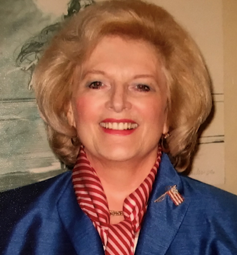GLADWYN LEIMAN, MBBCh, FIAC, FRCPath
1944—2023

Gladwyn Leiman passed away peacefully on 1st October, 2023, three days before her 79th birthday, in Colchester, Vermont, USA, her home for more than 20 years.
Gladwyn, daughter of Edith (nee Rosenberg) and Dr. Norman Leiman, grew up as a privileged product of Apartheid South Africa. Most atypically, as a newly qualified doctor she began her career at Baragwanath Hospital, a gigantic facility in the infamous Black South African “township” of Soweto, to which few White South Africans ever went. There, her initiative, “Project Screen Soweto”, monitored for cervical cancer precursors and established family planning protocols that led to a significant reduction in cervical cancers in the large population she followed. In the process she created a database that enabled researchers and practitioners across the world to expand the study and treatment of that lethal disease.
Among other precedent setting global contributions, as head of the cytology laboratory at the South African Institute for Medical Research, Gladwyn was a pioneer in early detection diagnostic cytopathology by fine needle aspiration (FNA), particularly deep organ aspirates, that in the words of an esteemed pathologist, “enhanced and extended the lives of millions” (emphasis is his).
For this, and many other clinical studies, Gladwyn was a sought-after speaker in international Obstetrics-Gynecology and Pathology communities, to whom she lectured and led panels, workshops, tutorials and seminars in 20 countries on six continents.
Tributes to Gladwyn always mention what a generous and compassionate mentor she was, most especially to young women trying to find their way through a male-dominated profession. Setting a precedent, she taught screening technologists and nurses, first, to perform superficial mass aspirations, and later, deep organ procedures. Not having to perform FNAs themselves freed cytopathologists to focus on providing immediate and accurate diagnoses—a hallmark of cytology departments Gladwyn ran—that often avoided the need for invasive surgery.
In 2000, Gladwyn was recruited as the Director of Cytopathology and a Professor of Pathology at the University of Vermont Medical Center in Burlington, VT, from which she retired in 2016.
This lifetime of achievement was recognized at the International Congress of Cytology in Paris in 2012 with the Maurice Goldblatt Award and by inclusion among 100 internationally renowned luminaries in a recently published book A Century of Achievement: South African Contributions to Global Medicine 1890-1990.
When Gladwyn retired, she was determined to reengage her right brain and refocus on pre-medical school passions: literature, music, and history. But it was her study of the Holocaust, a lifelong pursuit, that offers the clearest picture of her non-medical self.
In her usual way, Gladwyn became an authority on that horrific period of humankind’s inhumanity. She visited sites throughout Eastern Europe to research the atrocities and savagery perpetrated there. Her goal was to try to comprehend the incomprehensible: How neighbors could be inflamed to butcher neighbors. How masses could get swept up in a fever of violence and barbarity. Or justify the complicity of their inertia. In light of continuing genocides since 1945, she agonized over how the world could find the resolve to make the post-Holocaust cri de coeur “Never Again!” mean what it says. Needless to say, she found no satisfactory answers. But she never stopped searching and trying to understand.
Having spent her professional life diagnosing cancer, Gladwyn always assumed some insidious form would end her own life. And so expressed relief a few years ago when she was diagnosed with what would likely be the gentler end that is renal failure. Being able to live independently at home until just her last two days allowed her to continue observing the Sabbath, High Holy days and Festivals, and participate in Jewish and Zionist education, music, and cultural activities that strongly influenced her throughout her life. And, in her own word, to achieve “serenity”.
Gladwyn’s absence will be felt by her many friends and associates across the globe. And most acutely by her brothers Russell and Darryll and their wives Elaine and Michelle, and by her cherished nephew, Ilan, who was like a surrogate son.
The cycle of life is relentless. We come. We pass. Our lifetimes are meaningful in different ways. Gladwyn’s contributions will long continue to serve the world she has left behind.
Donations in her memory can be made to:
The University of Vermont Foundation (https://www.uvmfoundation.org)
American Society for Yad Vashem (https://www.yadvashemusa.org)
Rainforest Trust (https://www.rainforesttrust.org)